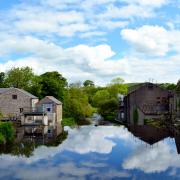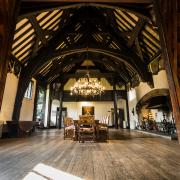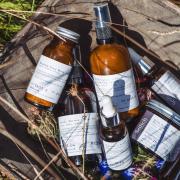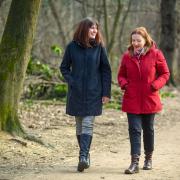I remember looking at my grandma, at the grand old age of 90, thinking: ‘wow, what you must have seen’.
My grandma, Vera May Whyte Ashworth, was as sharp-witted and fierce at the end of her life as she was in her youth – or so I assume, from the many tales she used to tell me.
The farmhouse that still has pride of place in the village of Low Moor in Clitheroe, Lancashire, was home to my grandma, after she was posted there during World War Two, as a Land Girl.

Land Girls was the name for the women who joined the Women’s Land Army (WLA) during Britain’s darkest years; they were a force of females who flocked to the countryside to take the place of men who were away at war to ensure the country could sustain its own food production.
They were a branch of the forces who have never really been recognised or celebrated, yet at its peak there were over 80,000 women in the WLA – by the end of the war, over 200,000 women had been working as Land Girls.
That is a lot of women to allow time to forget, my grandma along with them.
When my grandma died in 2017, I had recently had my first child, Maggie May, and after seeing her in the arms of someone who had seen such life and sacrificed so much, it reminded me of how fragile the memories and stories of her generation were becoming.
It led me to start my book, The Land Army’s Lost Women. It has turned into a collection of memoirs from former members of the WLA; in honour of my grandma, of course, but also in memory of thousands of women who helped lead us to victory during the war.

To put this into some perspective, before the war Britain imported around 70 per cent of its food but, due to the Land Girls’ effort, this figure was all but reversed by the end of the war. Had Germany succeeded in blockading our food imports, the nation would have been starved into submission.
My grandma was sent to Clitheroe from her home in Liverpool, to ‘fight from the fields’ – this was the Land Girl motto, if you will.
She was planning to work somewhere in the fashion industry, but global events put paid to that idea and after being posted first to a farm in Somerset, at just 18 years old in 1944, she was sent to Low Moor Farm where she met my grandad and lived the rest of her days as a dairy farmer’s wife.
I live in that same village, and the sight of the farmhouse is like a piece of living history. On that farm were German prisoners of war who, my grandma said, were hard workers, and wrote to them once back in their home country and made them wooden toys and ornaments.

Also on that farm was my grandma, a war hero in my opinion, with other Land Girls, milking the cows and tending to the crops on the fields behind, which are now a sea of houses.
Although my book features memories from women across the country, there are two others who have connections to Lancashire, and how I wish I could find out if their paths ever crossed, or if they ever met my grandma.
One, Marjorie Walker hailed from Slaidburn and worked on most of the farms across the valley. I met her and heard her story when she lived in a care home down Low Moor. Sadly, she died before the book came out, but her passion for the land – for the flora and fauna – and for the way of nature shone through.
Another of my Land Girls, Mary Harris, originated from Preston, although she joined up slightly after the war to escape her hometown life. I have since been to Blackburn to celebrate her 98th birthday with her and some of her family.
Mary’s tales will always stick with me; her memory has served her well, even down to recalling her designated bath day, which was Wednesday. Farm work was dirty work, especially back then, but, she said, at least they all smelled together.

But what struck me most was the freedom that many of these women gained by joining the WLA. Mary learnt a lot about herself and who she was as a person, as she said: ‘I learned to judge people on who they were as human beings.’
Farming was not, and still is not glamourous, and the Women’s Land Army seems to always be painted in a different light to the other wartime services. The iconic poster of ‘Rosie the riveter’ striking a pose, is one of the most famous images of women in World War Two, but many people haven’t heard of Land Girls.
My grandma was a strong woman who played an important part in the war and alongside other women, managed to lead us to wartime success.
I walk past the farmhouse most days and think of her, giving any man a run for his money, working hard on the farm, and I think of how if everyone looked a little closer, at the people and the places around them, there are stories from that period of time that connect us all.
These women had incredible bonds and lived through some very tough times together. As one of them told me: ‘Like birds of a feather, we stick together.’
The Land Army’s Lost Women by Emily Ashworth is out now, published by Pen and Sword.




























